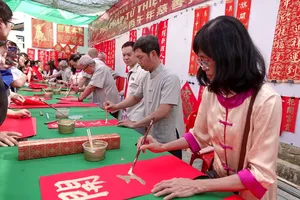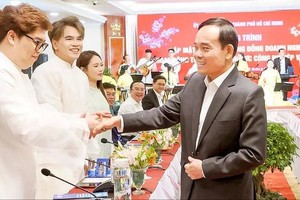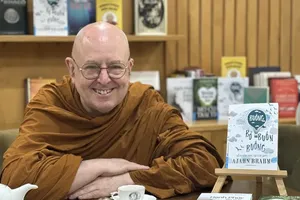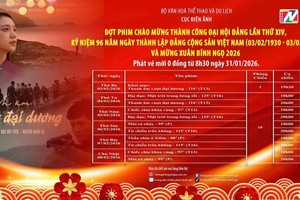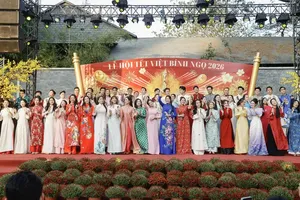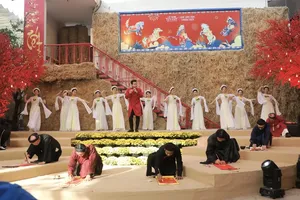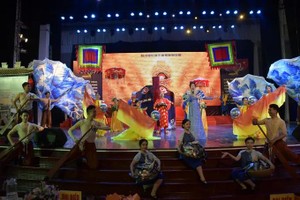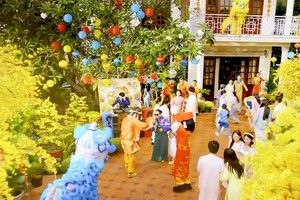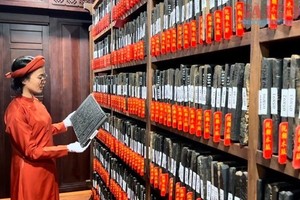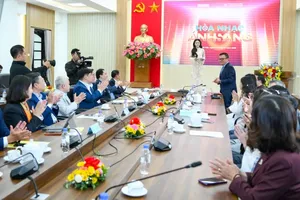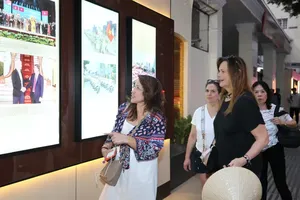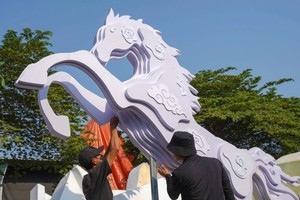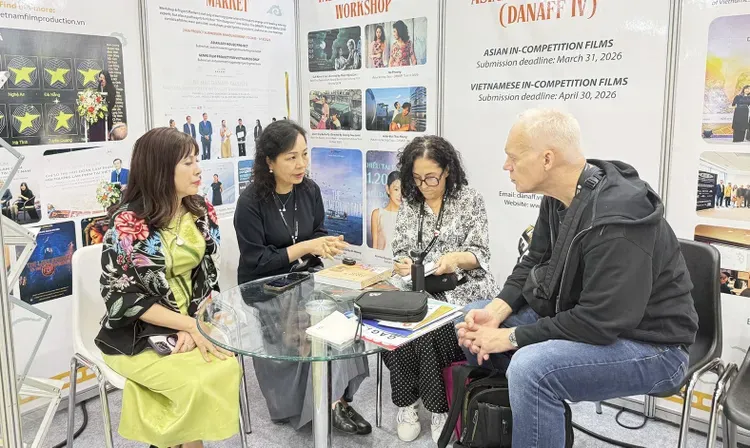
In late May 2025, French Minister of Culture Rachida Dati bestowed upon Dr Ngo Phuong Lan the prestigious Officer of the Order of Arts and Letters in Hanoi. It wasn’t just a personal honor, but a powerful international acknowledgment of her sweeping contributions to the cinema of Vietnam.
While she’s a familiar face at major events at home and abroad, her true influence radiates from behind the scenes. It’s there, in the roles of initiator, negotiator, and policy architect, that she transforms abstract ideas into tangible projects.
A highly respected administrator and researcher, she is known affectionately within the industry as its “torchbearer.” She rarely speaks of herself, but every project she spearheads leaves a lasting echo. It’s through her decisive actions that Vietnamese cinema has found a new vitality, a stronger pulse.
Her journey didn’t start in a managerial office but in the hallowed academic halls of VGIK in Moscow, one of the world’s most acclaimed film schools. That rigorous educational foundation, paired with a sharp, sophisticated perspective, became the launchpad for a career defined by decisions that were courageous, sometimes risky, but always innovative.
Born into a family of artists, with her father being the renowned People’s Artist Ngo Manh Lan and her mother artist Ngoc Lan, she was immersed in a world that nurtured her ambition to both understand and shape the art of film.
Her tenure as Director of the Vietnam Cinema Department (2011-2018) was marked by a series of bold policy experiments.
A landmark example was her championing of a public-private partnership for the film 'Yellow Flowers on the Green Grass.' At the time, backing a children’s movie, a notoriously difficult sale at the box office, was met with considerable skepticism. Yet, she stood firmly by her choice. “We believe in the project’s success,” she reportedly argued, “and we believe it will be a film that is both educational and deeply moving for audiences of all ages.”
The results were a resounding vindication. With 70 percent of its budget from the state and 30 percent from private investment, the film became a box office phenomenon, celebrated as a breath of fresh air in an era dominated by low-brow comedies. Its success restored faith among both officials and investors that Vietnamese audiences were, in fact, hungry for thoughtful, high-quality filmmaking. It was a pivotal moment, helping to cleanse a cinematic landscape that had become overly commercialized.
To this day, the film is remembered as the quintessential example of her dare-to-do leadership. She didn't just give speeches; she personally crunched the numbers, sourced partners, designed the financial framework, and persuaded stakeholders to bring the vision to life.
After leaving her government post, she took on the challenge of revitalizing Vietnam’s animation industry. Through the Vietnam Film Promotion and Development Association (VFDA), an organization she founded in 2019, she launched programs that served as a wake-up call for local studios. Her efforts ignited a fire of passion and creativity in a new generation of artists, empowering them to create for domestic audiences.
“She has a way of critiquing that is both precise and humane, leaving filmmakers feeling encouraged to strive harder,” once noted Ambassador Nguyen Phuong Nga, Vietnam’s Permanent Representative to the UN. Belinda Lui, President of the Motion Picture Association, Asia-Pacific, concurred: “She has an important voice in the film community and has opened the door for the most effective sharing of international experience.”
In 2010, as Vietnamese cinema was struggling to find its footing on the global stage, Dr Ngo Phuong Lan founded the Hanoi International Film Festival (HANIFF). It was a critical moment; Vietnam needed an international-caliber platform to showcase its own creative works while fostering collaboration across the region.
Under her direction, HANIFF quickly became that essential bridge, attracting hundreds of international filmmakers and award-winning films from festivals like Cannes, Venice, and Busan. She also established its professional backbone with initiatives like the Film Project Market and young talent labs, designed to help Vietnamese cinema break out of its domestic confines and engage with global standards.
The birth of HANIFF was a watershed moment. For the first time, Vietnam had a professionally organized, regularly scheduled international film event. It put Hanoi on the map as a cinematic destination and began to cement Vietnam’s position in the region, all while inspiring a new sense of national pride and purpose.
When she later took the helm of the Da Nang Asian Film Festival (DANAFF) in 2023, Dr Lan continued to build new bridges. If HANIFF was about welcoming the world to Vietnam, DANAFF was a more proactive step, a gateway for Vietnamese cinema to immerse itself in the broader currents of Asian film and promote the nation’s unique identity to an international audience. It serves as a festival, but as a comprehensive cultural strategy integrating film promotion, training, and project development.
UNESCO Director-General Audrey Azoulay called it “proof of the international recognition for Vietnamese cinema,” while Da Nang’s government sees it as a new driver for culture and tourism, signing a deal to host it annually through 2031.
“Passion, dedication, and responsibility are the secret to Ngo Phuong Lan’s success,” said screenwriter Nguyen Thi Hong Ngat. “Founding DANAFF was a historic step.” A representative from the French Ministry of Culture aptly described her as “a torchbearer, a woman of connection and dialogue, with a profound belief in the power of the seventh art.”
Beyond her administrative prowess, she is also a sharp and insightful critic. “Alongside being a reputable film critic,” affirmed Assoc Prof Dr Nguyen The Ky, “one sees in Ngo Phuong Lan a visionary manager, with heartfelt writings on how to build the Vietnamese film industry.”
Never one to stop at theory, she is now working with colleagues to develop a Film Crew Attraction Index, a practical tool to help localities lure international productions and showcase Vietnam as a professional, high-potential filming destination.
As French Minister Rachida Dati so aptly put it, “The medal is a recognition of an extraordinary journey by a woman who has overcome all limits, wholeheartedly for cinema.” It is that very journey that has thrown open the doors, allowing Vietnamese cinema to step onto the world stage with confidence, creativity, and a uniquely Vietnamese identity.

